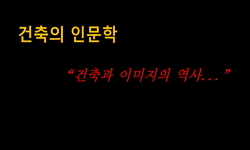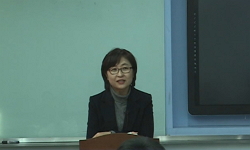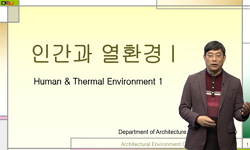A Mythology is a story the gods and divines described in the languages a To have their own myth means that they have their own semantics and philosophical concept in order to realize their dream or hope, symbolizing the imagery and events related to t...
http://chineseinput.net/에서 pinyin(병음)방식으로 중국어를 변환할 수 있습니다.
변환된 중국어를 복사하여 사용하시면 됩니다.
- 中文 을 입력하시려면 zhongwen을 입력하시고 space를누르시면됩니다.
- 北京 을 입력하시려면 beijing을 입력하시고 space를 누르시면 됩니다.

Myth and Architecture - Focused on the Correlation between the Jeju Myth and Jeju Traditional Houses
한글로보기https://www.riss.kr/link?id=A105896762
- 저자
- 발행기관
- 학술지명
- 권호사항
-
발행연도
2018
-
작성언어
English
-
주제어
Myth ; Architecture ; Jeju Myth ; Jeju Traditional houses ; Munjeon Bonpuree ; 신화 ; 건축 ; 제주신화 ; 제주전통민가 ; 문전본풀이
-
등재정보
KCI등재
-
자료형태
학술저널
-
수록면
49-71(23쪽)
-
KCI 피인용횟수
0
- DOI식별코드
- 제공처
- 소장기관
-
0
상세조회 -
0
다운로드
부가정보
다국어 초록 (Multilingual Abstract)
A Mythology is a story the gods and divines described in the languages a To have their own myth means that they have their own semantics and philosophical concept in order to realize their dream or hope, symbolizing the imagery and events related to the characteristics in mythology.
An architecture is human’s creative work to separate the inner space from the outer space and include their lives by constructing a structure to divide nature and even land.
The human’s desire is represented well in the house or any structures.
Therefore, the space composition of house is not restricted to the physical entity of the house.
This thesis not only aims to show how the myth in Jeju island has influenced on the the space composition of the traditional houses but to discuss what meaning the myth has in the corelation between the space composition and the myth.
Jeju Myth and Jeju traditional houses have many research accomplishments. However, research focused on the correlation between myth and traditional residential culture is difficult to find. This is because Myth and traditional residential culture were considered separate subjects.
This paper was intended to reveal the real meaning of Myth through the grafts of myth and traditional houses. To that end, This paper was intended to clarify the influence of Jeju Myth Munjeon Bonpuree on the formation and space layout of Jeju traditional houses. All the characters in the story of Munjeon Bonpuree are members of the family and eventually become deities and take charge of each area of the house. In that all of the characters in Munjeon Bonpuree have a one-to-one responding position to the spaces of traditional house in Jeju, it is an important resource to read the meaning contained in the Jeju traditional house. This is because the Jeju traditional houses based on Jeju myth is an important indicator for understanding Jeju citizens' view of world and religion.
참고문헌 (Reference)
1 이창희, "제주지역 전통주거건축의 자연친화적 특성에 관한 연구" 한국농촌건축학회 16 (16): 35-44, 2014
2 김영주, "제주전통민가의 공간배치를 통해 본 제주도민의 종교심에 관한 연구" 한중인문학회 (53) : 29-50, 2016
3 허남춘, "제주 신화 속의 해양교류와 해양문화" 탐라문화연구원 (52) : 7-41, 2016
4 김형준, "문전본풀이를 통해 본 제주전통주택의 경계공간 연구" 대한건축학회 23 (23): 179-186, 2007
5 Harajiri Hideki, "The Korean peninsula and Japanese islands in the maritime areas of the east China sea" Minsokwon 241-, 2017
6 Hyeon Yong-Jun, "Riddles of Jeju Myth" Jipmundang 130-, 2005
7 Ernst Cassirer, "Philosophie der Symbolischen Formen, Zweiter Teil: das Mythische Denken" acanet 13-, 2014
8 Song, Moonseok, "Myth, a Secret Code" Prunsasang 4-, 2018
9 Kim, Sooni, "Myth in Jeju Island" Yeoreum undoek 61-, 2016
10 Lee, Chanhjae, "Myth and Psychological Analysis" Acarnet 73-, 2014
1 이창희, "제주지역 전통주거건축의 자연친화적 특성에 관한 연구" 한국농촌건축학회 16 (16): 35-44, 2014
2 김영주, "제주전통민가의 공간배치를 통해 본 제주도민의 종교심에 관한 연구" 한중인문학회 (53) : 29-50, 2016
3 허남춘, "제주 신화 속의 해양교류와 해양문화" 탐라문화연구원 (52) : 7-41, 2016
4 김형준, "문전본풀이를 통해 본 제주전통주택의 경계공간 연구" 대한건축학회 23 (23): 179-186, 2007
5 Harajiri Hideki, "The Korean peninsula and Japanese islands in the maritime areas of the east China sea" Minsokwon 241-, 2017
6 Hyeon Yong-Jun, "Riddles of Jeju Myth" Jipmundang 130-, 2005
7 Ernst Cassirer, "Philosophie der Symbolischen Formen, Zweiter Teil: das Mythische Denken" acanet 13-, 2014
8 Song, Moonseok, "Myth, a Secret Code" Prunsasang 4-, 2018
9 Kim, Sooni, "Myth in Jeju Island" Yeoreum undoek 61-, 2016
10 Lee, Chanhjae, "Myth and Psychological Analysis" Acarnet 73-, 2014
11 Hyeon Yong-Jun, "Jeju Island Shamanism and the Surroundings" Jipmundang 260-261, 2002
12 Kim, Jaecheon, "Introduction of myth" Yoerai 66-, 2018
13 Kim, Jaecheon, "Introduction of Religion" Yoerai 40-, 2014
14 Yoon Il-E, "Houses of East China Sea Cultural Area" Sanjini 81-86, 2017
15 Jo In-Suk, "Evaluation on Social Sustainability of Living Environment" Sangmyeong University 2014
16 Kim, Kwanghyun, "Collectivity, a Architecture before Architecture" Gonganseoga 38-, 2014
동일학술지(권/호) 다른 논문
-
- 한중인문학회
- 王艳丽
- 2018
- KCI등재
-
- 한중인문학회
- 박경수
- 2018
- KCI등재
-
- 한중인문학회
- 유성선
- 2018
- KCI등재
-
Myth and Architecture - Focused on the Correlation between the Jeju Myth and Jeju Traditional Houses
- 한중인문학회
- Kim, Yeongjoo
- 2018
- KCI등재
분석정보
인용정보 인용지수 설명보기
학술지 이력
| 연월일 | 이력구분 | 이력상세 | 등재구분 |
|---|---|---|---|
| 2027 | 평가예정 | 재인증평가 신청대상 (재인증) | |
| 2021-01-01 | 평가 | 등재학술지 유지 (재인증) |  |
| 2018-01-01 | 평가 | 등재학술지 유지 (등재유지) |  |
| 2015-01-01 | 평가 | 등재학술지 유지 (등재유지) |  |
| 2011-01-01 | 평가 | 등재학술지 유지 (등재유지) |  |
| 2009-01-01 | 평가 | 등재학술지 유지 (등재유지) |  |
| 2004-01-01 | 평가 | 등재학술지 선정 (등재후보2차) |  |
| 2003-01-01 | 평가 | 등재후보 1차 PASS (등재후보1차) |  |
| 2002-01-01 | 평가 | 등재후보 1차 FAIL (등재후보1차) |  |
| 1999-07-01 | 평가 | 등재후보학술지 선정 (신규평가) |  |
학술지 인용정보
| 기준연도 | WOS-KCI 통합IF(2년) | KCIF(2년) | KCIF(3년) |
|---|---|---|---|
| 2016 | 0.46 | 0.46 | 0.46 |
| KCIF(4년) | KCIF(5년) | 중심성지수(3년) | 즉시성지수 |
| 0.45 | 0.41 | 0.808 | 0.05 |





 KCI
KCI







